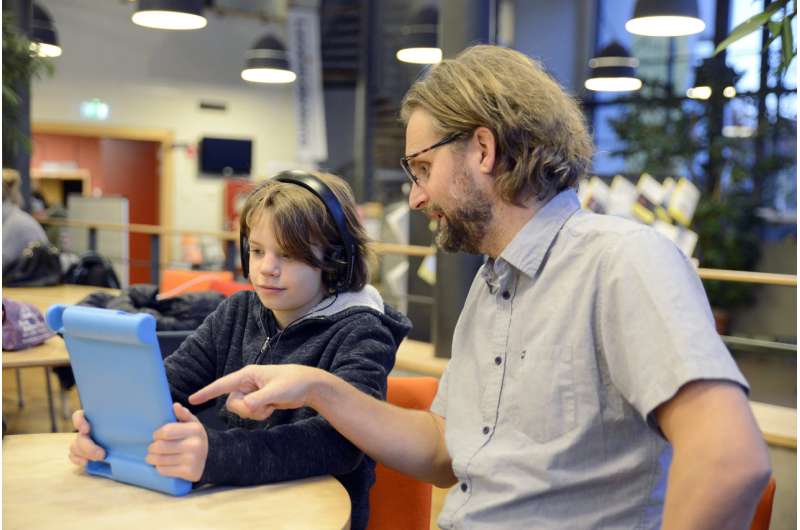Credit: Linnaeus University
New research from Linnaeus University in Sweden shows that apps, technology and modern teaching skills are working for children with reading disabilities. The mental health of these children is affected positively by the reading apps and learning technology available today.
Researchers studied the correlation between assistive technology (AT) such as apps on Ipads and the mental health of children with reading disabilities. The results show that students with reading disabilities are actually feeling better than expected and that technical aids such as apps are effective learning tools.
The thesis includes three empirical studies, all with the purpose of increasing the understanding of the interactions and connections between self-concepts, reading impairment, mental health and AT. The use of applications in tablets as assistive technology to facilitate reading and compensate for reading impairment and its impact on the participants' mental health and reading abilities was of interest to the thesis.
The results generally showed a more positive depiction than what previous studies within the field have presented, which was interpreted as being due to the development of efficient pedagogical strategies and supportive attitudes in the school context as well as among family members or peers.
The first study assessed pupils by the BYI regarding self-image, anxiety and depression. The results showed no deviance from age-equivalent scores.
The second study aimed at investigating the decoding and reading ability after 20 intervention sessions with AT. Results showed that the decoding ability progressed at the same rate as the norm group. The results also showed that apps increased motivation to learn as well as independence and an improved family climate. The third study showed that reading impaired children and adolescents to a great extent, but not completely unanimously did not depict any different self-image or self-esteem than peers with an expected reading ability of the same age. The results also showed that there were no signs of depression in the groups as assessed by the Beck Youth Inventory, but somewhat inconclusive results regarding anxiety.
Provided by Linnaeus University





















